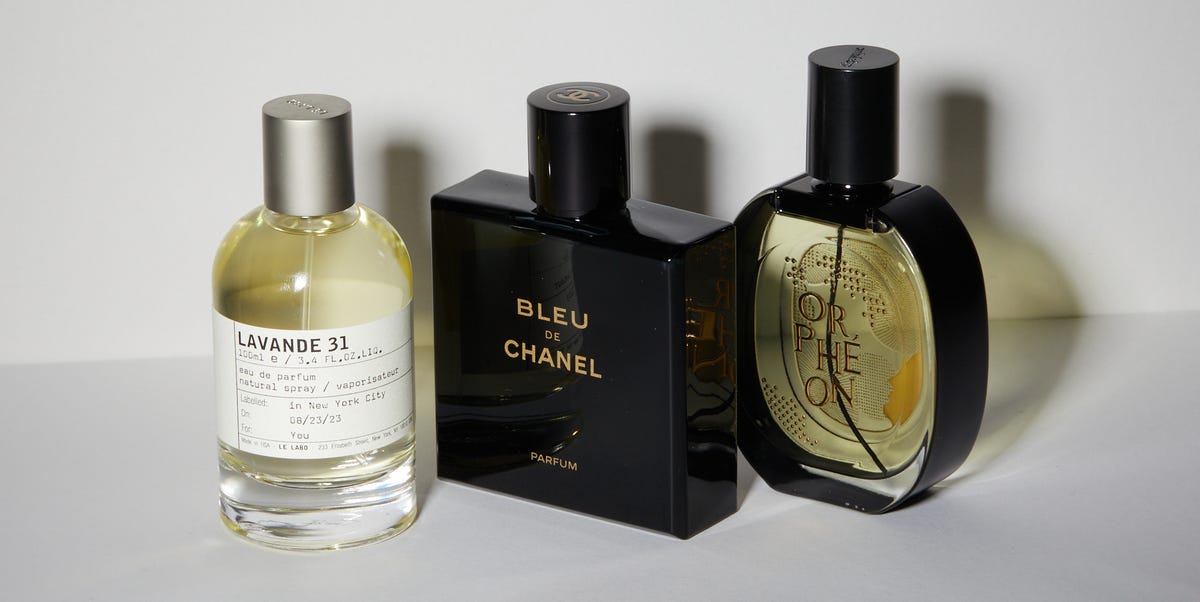We’ll be real with you—it’s really hard to choose a cologne without smelling it, because that’s ultimately the most important thing, right? But these are some general tips that can at least help you narrow it down.
Concentrations: Fragrances are classified based on their concentrations of actual fragrance in the juice (i.e., the liquid inside the bottle). Eaux de toilette have the smallest amount of fragrance, which means they’ll last the least amount of time on your skin. Eaux de parfum and parfums, on the other hand, have the highest concentration of fragrance and will last the longest (we’re talking around six hours or more). They also tend to be more expensive. If you’re hoping to get more longevity out of your cologne, consider going for one with a higher concentration.
Fragrance Families: Even if you’re a professional perfumer, knowing what a cologne smells like just from the list of notes is difficult. You may know you love sandalwood, for instance, but sandalwood can smell very different depending on what it’s mixed with. A better jumping-off point is the family the fragrance belongs to, which will give you an idea of the overall vibe. There are four main families: fresh, woody, floral, and amber. You’ll also sometimes see fragrances referred to as a fougere or a chypre, which are old-school subcategories in the fresh family. Many notes can be mixed to belong to any of the families, so knowing which a specific fragrance belongs to will help you understand how the complete picture smells.
Wear Test: If you have access to the cologne in real life (many online companies will allow you to order samples, by the way, which is always a great idea), do a wear test before committing. Colognes are designed to evolve as they stay on your skin, so what you smell on the blotter or when you first spray it isn’t necessarily what it’s going to smell like a couple of hours into wearing it. Spend at least a day with the fragrance on your skin, smelling it periodically, to make sure you like how it wears and mixes with your unique body chemistry.
Read the full article here








